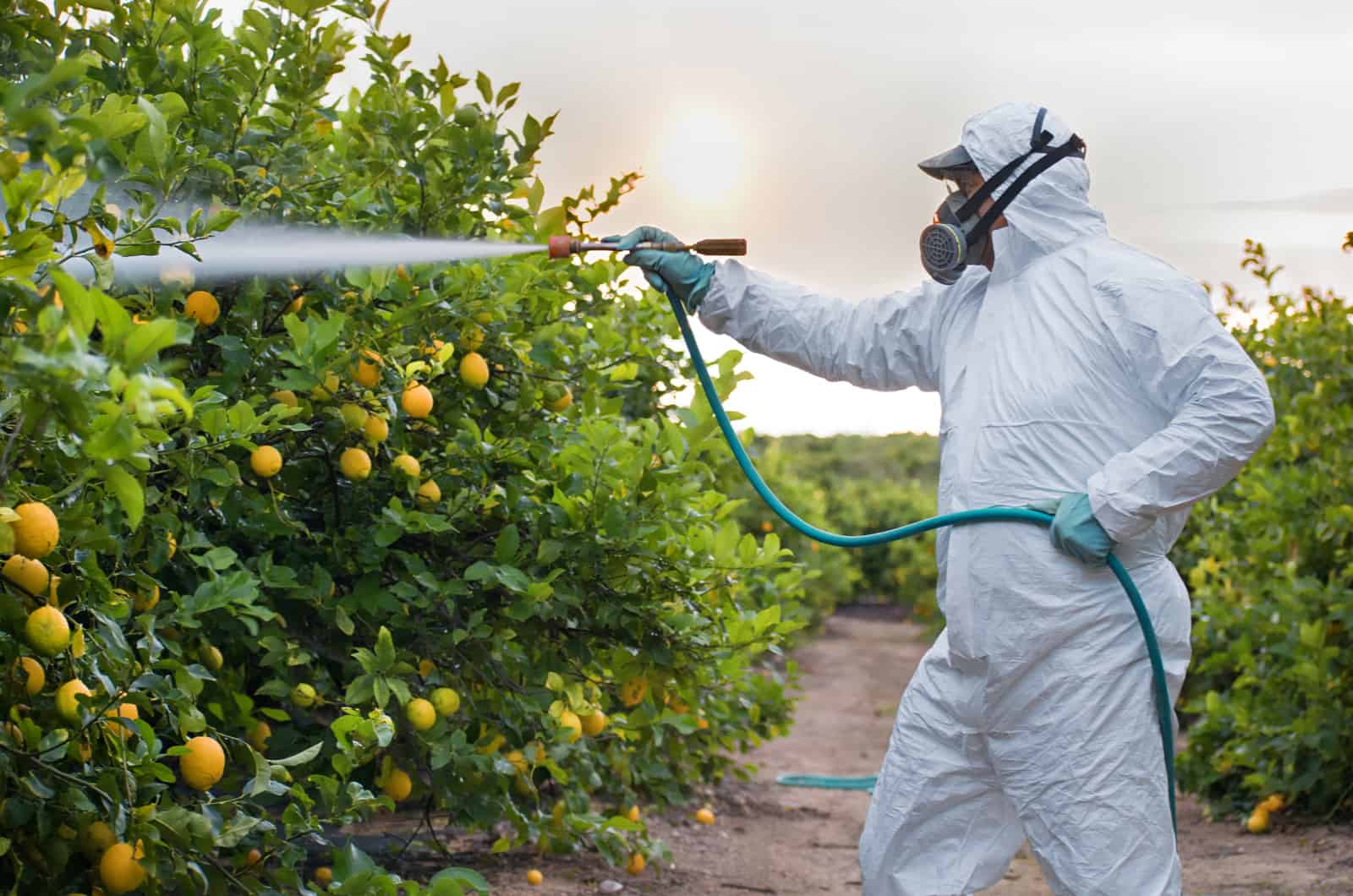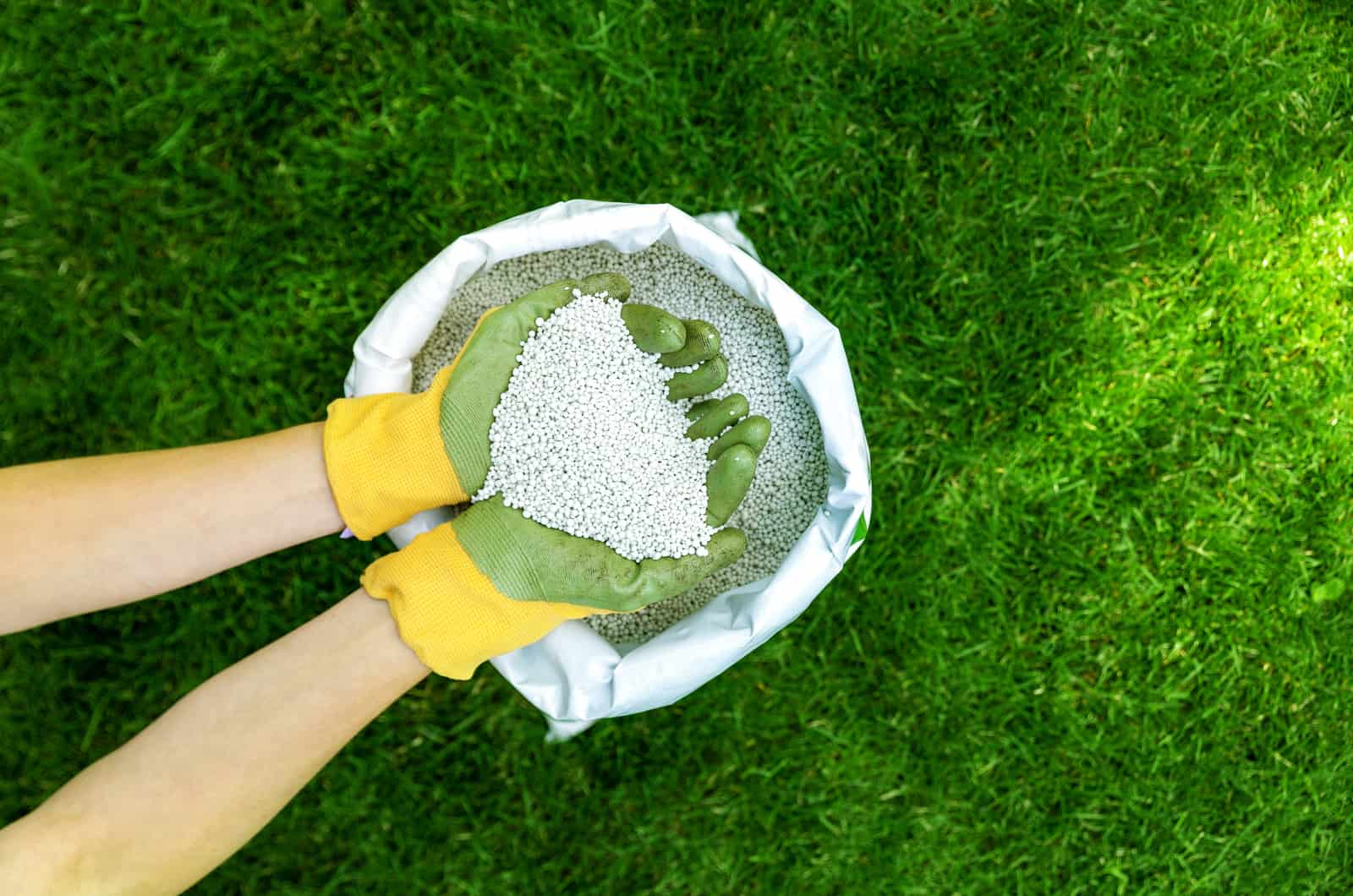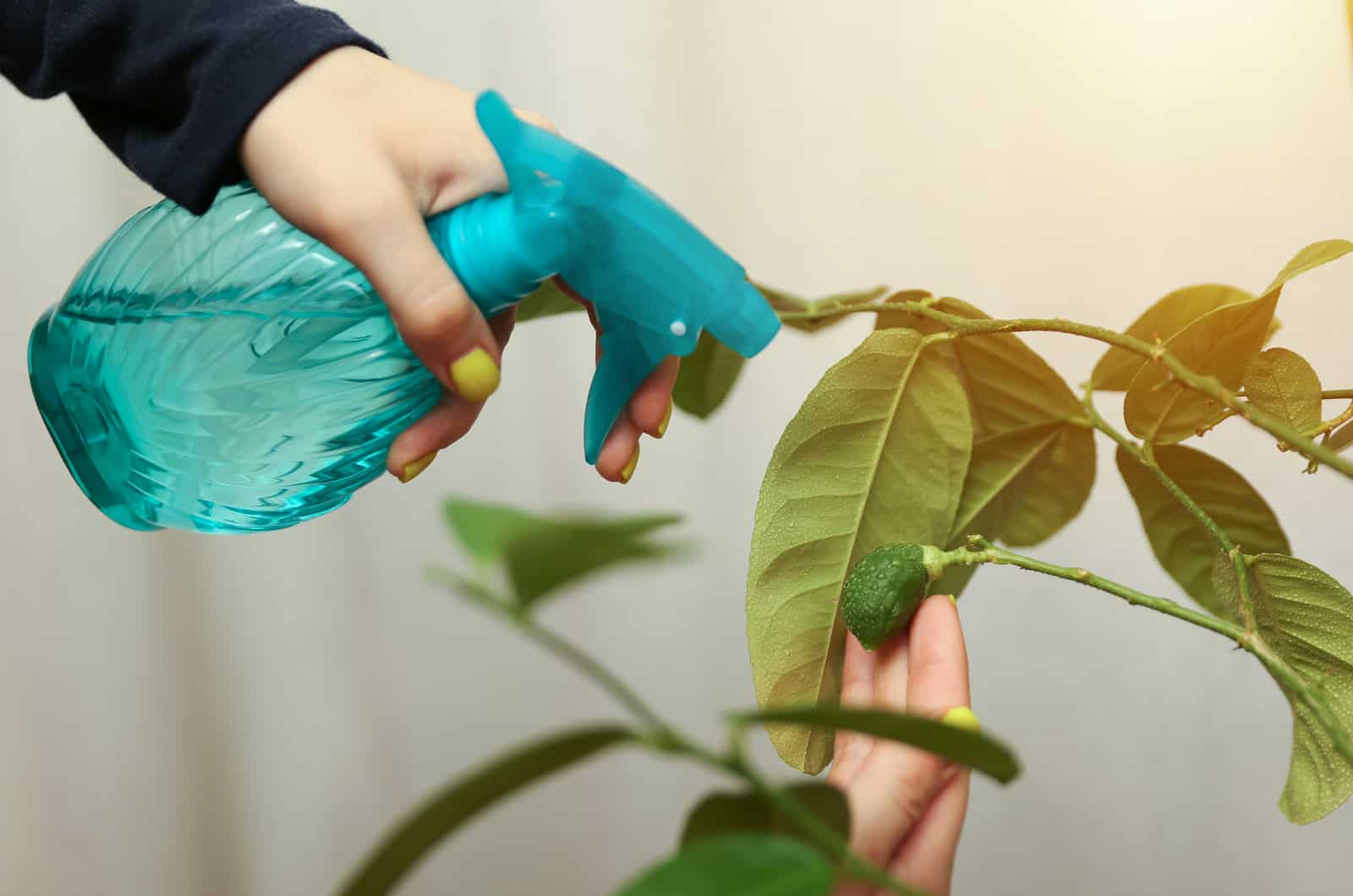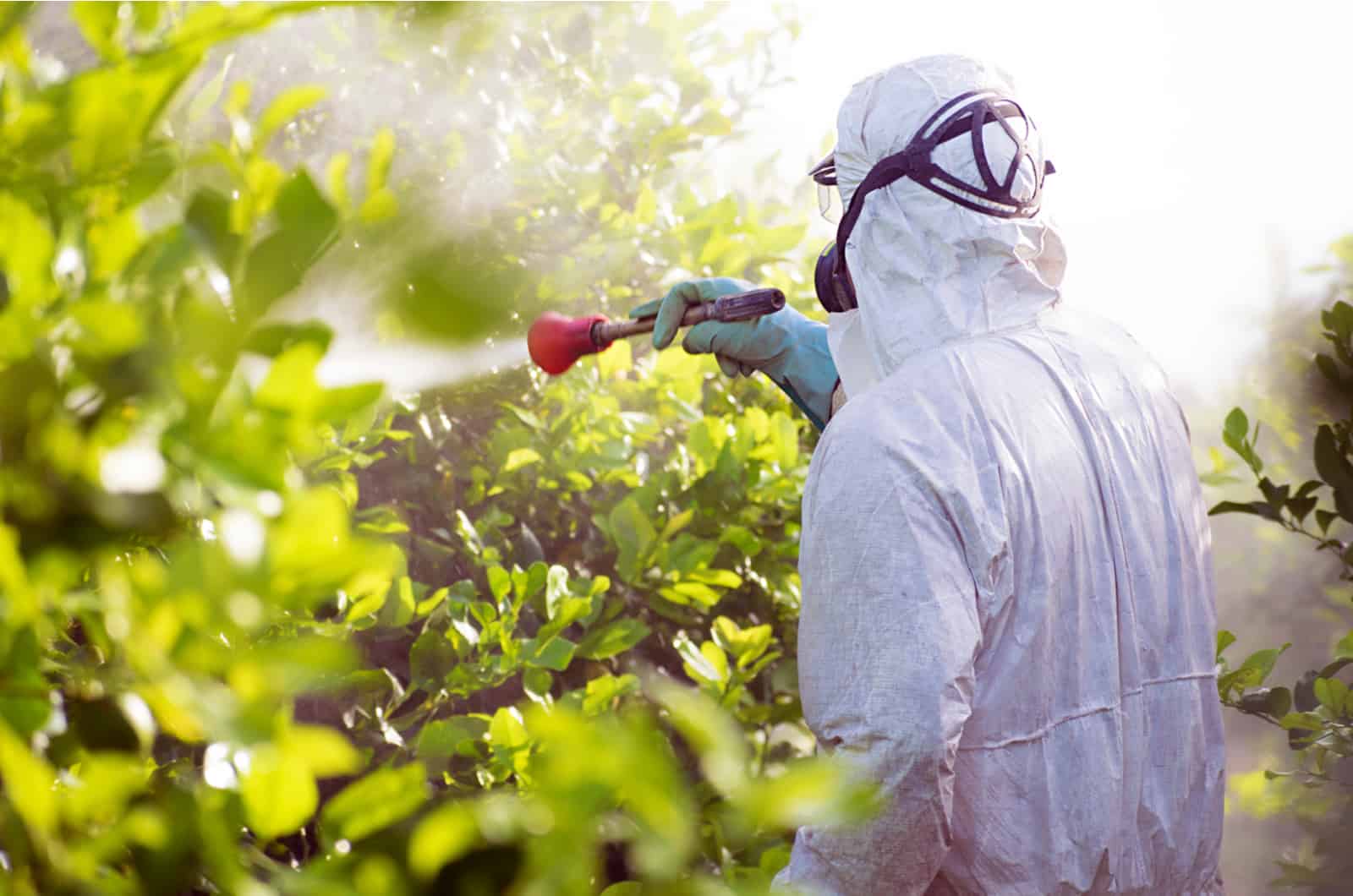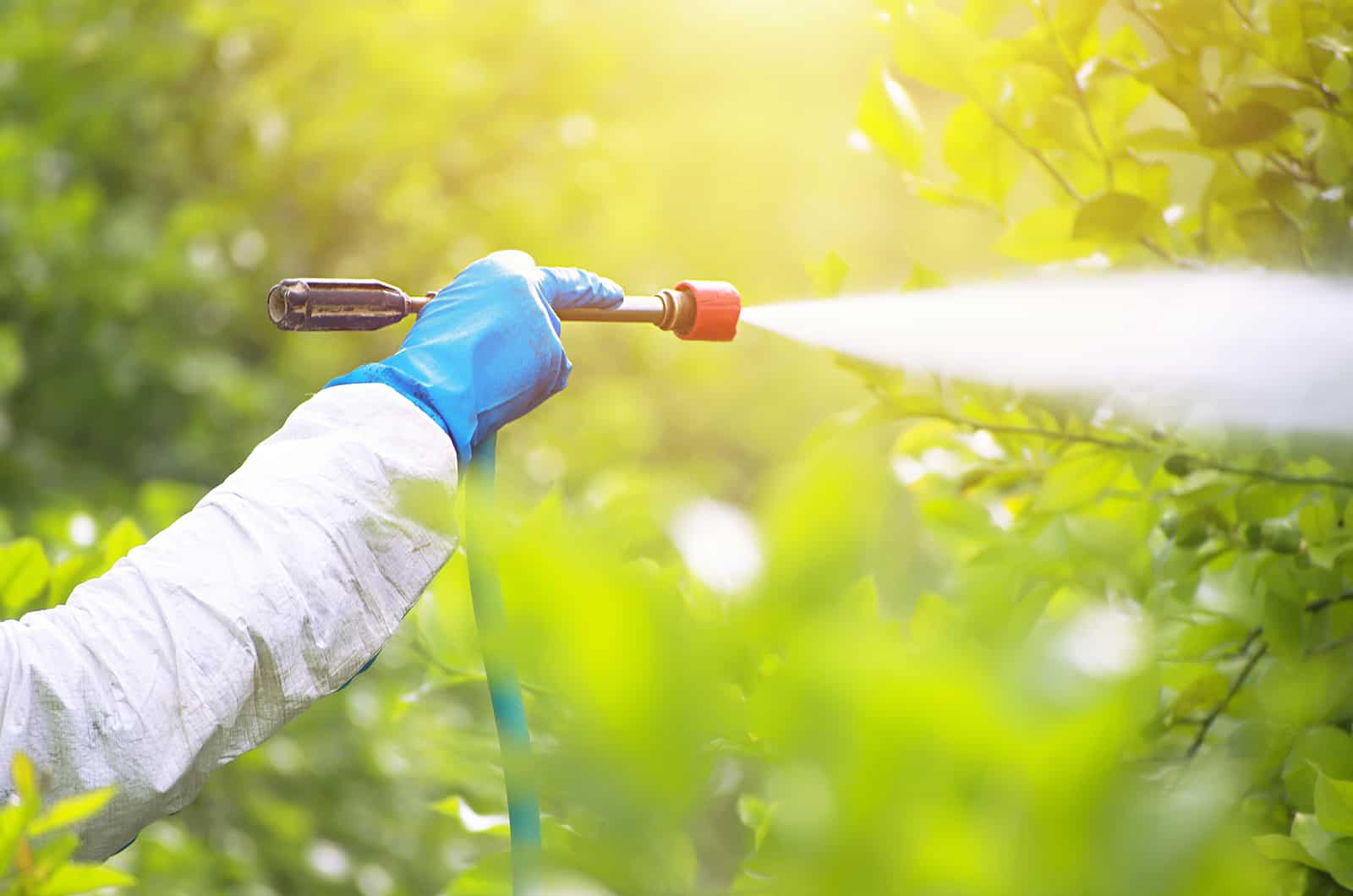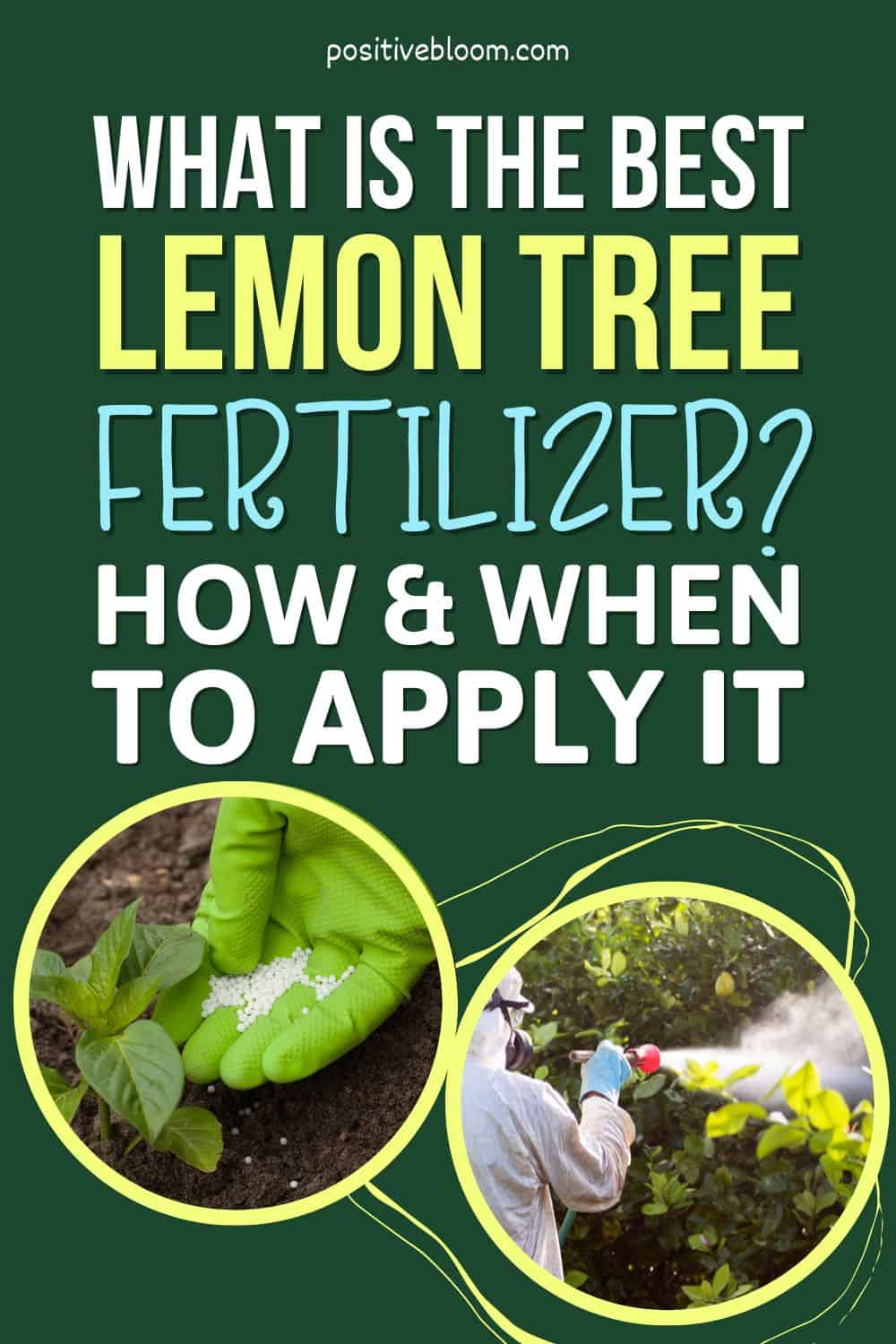You have probably heard that many gardeners are growing lemon trees in containers nowadays, and you may want to try your luck and grow one yourself. So if you have successfully planted the tree and read all the instructions for lemon tree care, now is the time to talk about fertilizing.
Lemons are citrus fruits, and the majority of citrus plants are known to be heavy feeders — they need fertilizers to produce those delicious, juicy fruits… but how to know what is the best lemon tree fertilizer? When to even fertilize this citrus tree?
Read on to find all the answers about lemon tree fertilizers!
Different Types Of Lemon Tree Fertilizers
Whether you have a lemon orchard, or you are growing a single lemon tree in a container, you will need to know what the most appropriate fertilizer for your fruit-bearing tree is.
Fertilizers used for citrus plants are usually NPK fertilizers that contain different micronutrients, such as magnesium, manganese, boron, phosphorus, zinc; and for those who are growing their lemons in a container, fertilizer with significant amounts of nitrogen is a must! You can choose from a liquid fertilizer that is kind of weak and can be applied weekly, to a slow-release citrus fertilizer that is applied only once a year.
Let’s dive in!
Liquid Fertilizers For Lemon Trees
Liquid fertilizers are commonly used for the trees that are grown in containers, however, they can also be applied weekly because your tree will need lots of plant food to produce those delightful lemons!
Liquid fertilizers are usually diluted with water according to the instructions displayed on the package. Citrus concentrates can also be diluted with water and used as a liquid fertilizer for indoor plants.
Bear in mind that it can be quite difficult to grow any citrus plant indoors without enough sunshine and air circulation; nonetheless, you can try growing a Meyer lemon tree, which is probably the most suitable type of citrus plant to cultivate inside.
Fertilizer Spikes For Lemon Trees
Fertilizer spikes are probably the best fertilizers for those who are constantly in a hurry, and don’t have time to go and spray each leaf of a lemon or a lime tree. With this type of fertilizer, you get spikes that are just placed on the soil.
They work best for the container trees, because the dosage is perfect and it is super convenient and easy! Of course, you will have to look at the instructions to get the right amount because the dosage is different when you are dealing with either a young or mature tree.
Granular Fertilizers For Lemon Trees
Granular fertilizers are similar to the previous type, because they are also spread on the soil and don’t require mixing with water and such. Just scoop the granules, and distribute them on the soil; growers tend to dig them in deeper to accelerate the whole process.
Give the right amount of granules according to the instructions and developmental stage of the tree.
When To Apply Lemon Tree Fertilizer
Almost all fruiting trees require fertilizers to produce fruits, and sometimes the nutrients in the ground are simply not sufficient enough. Since lemon trees have a long growing season, you will be busy with fertilizing!
Lemon tree fertilizer should be applied once every three months during the growing season, and a liquid fertilizer at least once a week. Carefully read the instructions displayed on the package and give the appropriate amount of fertilizer to your lemon tree.
Start applying these in the early spring, as soon as the tree starts blooming. However, lemon trees should not be fertilized during the colder season, as the tree is not producing fruits so this will only lead to chemical build up in the soil.
If you are unable to apply fertilizer throughout the growing season, then you can use a slow-release fertilizer — this type of fertilizer should be applied only once during the growing season (the best way is to do so at the beginning of the season), and it will slowly release nutrients throughout the year, and your fruit-bearing lemon tree will use it for fruit production.
How To Apply Lemon Tree Fertilizer
First, you have to choose an appropriate fertilizer for your lemon tree: you need to decide whether it is going to be liquid, slow-release, granular, etc.
Different fertilizers are prepared differently — if you are dealing with a liquid fertilizer, then you will probably have to mix it with distilled water, while granular fertilizers are just poured directly onto the ground. In most cases, you will need to look at the manufacturer’s instructions on how to prepare the fertilizer and how to apply it.
In most cases, fertilizers are applied in a circle around the base of the plant and they are applied according to the lemon tree’s height — for instance, if your lemon tree is 3 feet tall, then you would apply a circle around the plant that is about 3 feet in diameter. This way, the lemon tree fertilizer will be able to reach the ends of the roots and provide all those yummy nutrients for the entire tree!
As they grow bigger and bigger, the trees will require much more nitrogen because it is essential for fruit production.
It usually goes like this: when the plant is at the beginning of its new growth, 6-6-6 fertilizer should be applied around the dripline, at least 3 times a year. Then you should switch to 1 pound of fertilizer when the tree has matured — it takes about 8 years to reach full maturity. Mature lemon trees will need approximately 20 pounds of fertilizers during the entire growing season.
What would happen if Lemon trees were not fertilized?
No fertilizers, no lemons.
As we have previously mentioned, trees that are producing fruits require lots of nutrients to be able to grow the fruits and reach full maturity.
If your lemon tree does not get fertilized: at the beginning you will start to see yellowing leaves, which will lead to the drop of already developed lemons, or the lemons will not develop at all!
Imagine a scenario where you take good care of your tree and now you are impatiently waiting for those lemons, then you realize that you’ve accidentally forgotten to apply fertilizer, how disappointing!
In case you don’t apply any fertilizers whatsoever, then you will end up with unripe, green lemons, or no lemons at all!
On the contrary, you could be overfertilizing your lemon tree, which can lead to excessive fruit production; however, these fruits are more susceptible to pests and diseases, and they taste completely different to normally grown lemons.
Top 10 Citrus Tree Fertilizers In 2022
Citrus tree fertilizers are versatile and they can be applied to the majority of citrus trees, including lemon trees, orange trees, mango, grapefruit, avocado tree, etc.
1. Miracle-Gro Fruit & Citrus Spikes :
[table id=113 /]
One of the most convenient fertilizers are the ones that come in little spikes! They are easy to apply — all you have to do is put the spikes in the moist soil and you are good to go!
You don’t have to worry about over fertilizing or under fertilizing your lemon tree with the spike fertilizers, mainly because you almost always get the right dosage.
Bear in mind that the soil must be moist before fertilizing, as the spikes won’t dissolve in a dry soil. Detailed instructions on how to apply Miracle-Gro Fruit & Citrus Spikes are displayed on the packaging, however, they are mostly applied twice a year: in spring and in fall.
The disadvantages to these are that the spikes sometimes might be too large for young trees, and that they have to be properly stored after the bag has been opened; for instance, they have to be stored in a cool and dry place.
2. Jobe’s Organics Fruit Fertilizer Spikes
[table id=114 /]
Similar to Miracle-Gro, the Jobe’s Organics Citrus Fertilizer Spikes is a type of fertilizer that comes in little packages that look like spikes!
They are a type of slow-release citrus fertilizers that should be applied only at the beginning of the growing season, and it should be sufficient enough to provide the tree with all the necessary nutrients.
This type of fertilizers are simply submerged in a slightly moist soil around the tree dip line; they do not require prior preparation or mixing with water. The amount of spikes depends on the size of the tree; for instance, if the trunk of the tree is 3 inches in diameter, then about 4 or 5 spikes should do the trick!
You really should pay close attention to the instructions — they are very simple and clear.
There are not really any disadvantages when it comes to Jobe’s Organics Citrus Fertilizer, and they are also suitable for citrus trees that are being grown in a container!
3. Down To Earth Organic Citrus Fertilizer
[table id=115 /]
With a 6-3-3 formula, Down To Earth Organic Citrus Fertilizer is a great fertilizer for avocado trees and citrus fruits, especially lemon trees.
This fertilizer is versatile and can be used for different trees and decorative plants as well, to promote flower blossom and leaf growth.
Micronutrients contained within these fertilizers are calcium, iron, zinc, alfalfa meal, feather meal, bone meal and many more essential nutrients that encourage the production of the juiciest and most tasteful fruits!
Unlike the previously mentioned spike fertilizers, this type of fertilizer is applied by digging it into the soil to yield the best results, however, you can also spread it on top of the soil and rake it to loosen up the soil.
It is usually applied four times during one growing season, and you should prepare it as per the instructions provided on the packaging. Even though it requires a bit more time for preparation, this type of fertilizer is one of the best ones to get large batches of lemons!
4. Espoma CT4 Citrus-Tone Plant Food
[table id=116 /]
This fertilizer contains living Espoma microbiome, and this is how the fertilizer got its name: Espoma CT4 Citrus-Tone Plant Food.
It is a long-lasting, slow-release type of fertilizer that contains NPK of 5-2-6, making it perfect for all kinds of citrus fruits including limes, oranges, lemons, avocados; and it can also be applied to nut-bearing trees.
Espoma CT4 Citrus-Tone should be applied in January, to boost up the beginning of blooming; and after the blooming, somewhere in May or June. Additional application is a matter of choice, however, make sure to follow the instructions!
One of the drawbacks is the form of application: you should dig the soil, and then add the fertilizer to mix it with the soil; this would not be so bad if the smell of this fertilizer was not so horrible!
Lastly, I recommend that the smell is worth suffering a bit, because using Espoma CT4 Citrus-Tone fertilizer will definitely bring you numerous juicy fruits!
5. Westland Citrus Tree Feed Concentrate
[table id=117 /]
This is one of the best liquid fertilizers for citrus trees that encourages fruit production , as well as lush green foliage and delicate flowers during blossom!
Westland Citrus Tree Feed Concentrate contains NPK 5-3-7, the perfect nutrient combination for all citrus trees, especially the ones grown in colder climates.
Because this is a concentrate, it should be diluted with water before applying — you usually dilute one cap of it with one liter of water, however, I would yet again suggest that you read the instructions. Since we are dealing with a liquid fertilizer, it should be applied weekly during the growing season (the best time would be from April to September).
Even though we are avoiding fertilizers during colder seasons, you can still apply liquid fertilizer once a month to prepare the plant for the growing season.
6. Vitax Citrus Fertilizer For Summer
[table id=118 /]
This type of fertilizer is the most suitable for indoor citrus plants — for instance, many plant lovers tend to grow lemon trees especially because of their foliage and flowers, regardless of the lemons! Citrus plants might be one of the first options in home decor for someone that wants to bring summer vibes indoors.
There are two types of Vitax Citrus Fertilizers: for summer and for winter. Both are quite similar, though their micronutrients differ slightly.
When it comes to Vitax Citrus Fertilizer for summer, the formula is NPK 2.5-1.5- 1.5 and it contains nutrients such as copper, zinc, and iron.
In terms of application, it is usually mixed with 2,5 liters of water and applied weekly throughout the growing season. This fertilizer will solely focus on foliage and flower production, whilst still boosting the fruits’ growth! The only flaw is that it is not available in all regions.
7. Citrus Focus Liquid Concentrated Fertilizer
[table id=119 /]
Citrus Focus Liquid Concentrated Fertilizer differs a bit in terms of composition; for instance, it contains seaweed (kelp) extract which is quite rare in fertilizers. Aside from that, it contains fulvic and humic acids that increase the fertility of a compost.
It is much more suitable for the citrus plants grown in containers, however, it can also be applied in orchards (highly unlikely). It primarily encourages the growth of foliage and flowers, in addition to fruit production.
This fertilizer is applied weekly in the period from March to October, and it is prepared by diluting 100 milliliters of fertilizer with 1 liter of water. A positive is that this fertilizer can last up to 2 years!
8. Jobe’s Organics Citrus Fertilizer With Biozome
[table id=120 /]
Jobe’s Organics Citrus Fertilizer With Biozome is a type of granular fertilizer with a 4-4-4 formula and is suitable for mature and young citrus trees. This unique fertilizer contains microbes that are able to break down material pretty quickly, which is why this is one of the best fertilizers out there!
Not only does it improve the soil quality and provide essential nutrients for your citrus plant, but it also contributes to pest and disease resistance!
You can also apply it to trees other than citrus, such as plum, apple, cherry, peach, nut, and also kumquat trees. It is prepared by mixing one cup of the granules with the soil, however, I would recommend that you follow the manufacturer’s instructions. This fertilizer is usually applied every 2 to 3 weeks during the growing season.
Bear in mind that Jobe’s Organics Citrus Fertilizer With Biozome is not recommended for indoor citrus plants grown in containers.
9. Miracle-Gro Continuous Release Citrus Fertilizer
[table id=121 /]
This fertilizer contains essential micronutrients such as potassium, zinc, magnesium and iron; however, it also contains microbes that are able to break down the compost much faster and increase the water uptake to promote stronger growth.
Another positive thing about Miracle-Gro Continuous Release Citrus Fertilizer is its versatility: it can be found almost anywhere and it can be applied to indoor plants, as well as outdoor citrus plants. So you won’t have to worry about buying two types of fertilizers for your citrus plants!
There is no doubt that these fertilizers will provide your citrus plant with all the necessary nutrients, and you will end up with a large batch of lemons and oranges throughout the growing season.
Its application depends on the developmental stages of the plant, as well as the growing habitat (if it is grown outdoors or indoors); in both cases, you should be careful when applying this fertilizer as it can burn your plant easily.
Just read the instructions and you will be all set!
10. EarthPods Organic Citrus Fertilizer Spikes
[table id=122 /]
Probably the most unusual fertilizer, EarthPods Organic Citrus Fertilizer Spikes is a type of fertilizer that utilizes waste food for vermiculture to eat and turn into nutrient-rich compost! This is then processed and augmented with natural fertilizer ingredients to make the most optimal organic fertilizer.
Please note that vermiculture is a composting worm that is commonly used in fertilizing and composting.
This fertilizer is packed into capsules: they are usually put into the soil every 2 to 3 weeks, for a slow-release effect, and the number of capsules depends on the plant’s size. Please read the instructions carefully.
The downside of this fertilizer is that it is only suitable for dwarf citrus plants, or the ones that have been growing in a container.
Frequently Asked Questions
1. What are the benefits of fertilizing lemon trees?
The most obvious answers would be the lemons — and that is the right answer! Since lemon trees are heavy feeders, the nutrients provided in the soil are not sufficient enough for fruit-bearing trees such as lemon trees.
Applying different fertilizers will provide all the essential micronutrients that your tree needs to produce its delicious fruits. Asides from that, fertilizers will assess and improve the overall growth of the tree, including the foliage and flowers during blossom. Fertilizers will establish your lemon tree and encourage your tree to produce many of the juiciest and tasty lemons!
2. How do I use coffee grounds as fertilizer?
Coffee grounds are a type of homemade lemon tree fertilizers: you simply use two cups of brewed coffee and mix it with 5 gallons of water and leave it overnight. Another way that you can use coffee grounds as fertilizers is by sprinkling them onto the soil, or adding them to the compost bin.
Coffee grounds aid with soil aeration, water retention and drainage, and they are a good source of nitrogen and organic material.
3. Is fertilizer expensive?
The prices of fertilizers have been going up lately, and almost all gardeners are wondering why. If you are growing a few lemon trees in your garden, or if you are growing it as an indoor decorative plant, then high fertilizer prices might not be an issue for you. However, it is now quite difficult for those growers that have orchards of lemon trees, as they have to buy tons of fertilizers for a growing season.
Nowadays, the average price of a ton of fertilizer costs about $800, whilst one bag of fertilizer can cost from $6 to $26 (depending on the quality).
Final Thoughts
Fertilizing is an indispensable part of growing lemon trees!
These citrus trees are heavy feeders and they require additional nutrients in their soil to produce those juicy lemons. When the plant is young, it might not produce fruits in the first few years, even if you are fertilizing it. The lemon tree needs a few years to get established.
Once you notice that it has blossomed and started producing fruits, then it is time to give it that energy boost with different kinds of lemon tree fertilizers!
You can pick and choose from many different options when it comes to fertilizing, however, if you are a busy bee and don’t have time to constantly be fertilizing your lemon trees, then I would suggest you to get the slow-release type of fertilizer that should be applied once a year.
Keep applying liquid fertilizers weekly during the growing season, in addition to granular or spike fertilizers. Avoid fertilizing during the colder season.
I wish you good luck with finding the right fertilizer, and remember to follow the instructions on the packaging!
Until next time!
Like this post? Share or pin it for later!

